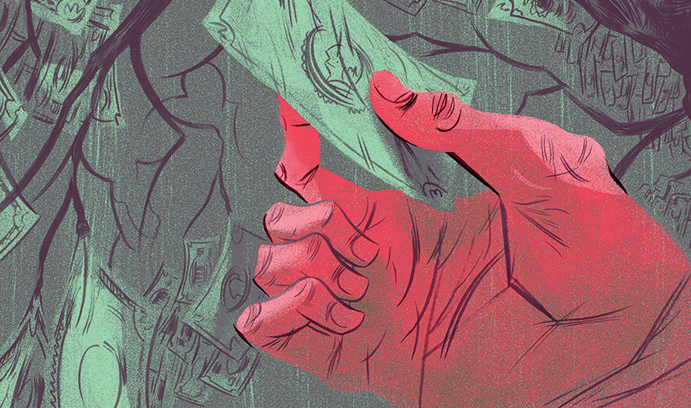Can Sanctioned CPA Firms Rebuild Their Reputations?

Multiyear study was conducted by Heibatollah Sami, professor of accounting at Lehigh, and colleagues Junxiong Fang, professor of accounting at Fudan University in Shanghai, China, and Haiyan Zhou, professor of accounting at the University of Texas-Rio Grande Valley.
In the first study of its kind, researchers have found that certified public accounting firms sanctioned for failing to properly audit an individual client had been performing low quality audits in general. However, the study also showed that the firms, despite the scandals, were able to rebuild their reputations by taking remedial actions and significantly improving the overall quality of their audits.
The multiyear study was conducted by Heibatollah Sami, professor of accounting at Lehigh, and colleagues Junxiong Fang, professor of accounting at Fudan University in Shanghai, China, and Haiyan Zhou, professor of accounting at the University of Texas-Rio Grande Valley.
Their research—Do Auditors Strive to Improve Audit Quality after Sanctions? Evidence from an Emerging Market—focused on CPA firms in China that had been sanctioned by China's regulatory agencies for their audit failures during the period of 1999 to 2011.
"Much like the Enron collapse [in the United States], these scandals usually lead to a loss of billions of dollars of stock value and deep concerns about the quality of financial reporting in China," Sami said.
The scandals hammered China's stock markets and motivated the Chinese government to enact the CPA Act of 1994, which holds certified public accountants liable to their clients and others for losses associated with audit failures.
"The results showed that when a firm in China is sanctioned, it had lower audit quality before the publicized accounting scandals and disciplinary action," said Sami. "And they had higher client turnover due to the scandal and subsequent sanction."
Enforcement actions taken by the China Securities Regulatory Commission reached their peak in 2001, with 71 cases, compared to 16 in 2000. In 2002, the nation's high court allowed intermediate courts to accept lawsuits involving fraudulent financial statements, resulting in 893 civil cases against listed companies or their auditors.
Sami said it takes time to improve the quality of audits at firms with shredded reputations, but that efforts can pay off. When the firms took steps to improve the accuracy and quality of their work, their clients, in turn, placed a value on those efforts to gain back lost reputations.
"In the course of the research, we found that CPA firms may charge higher fees by devoting more resources into the accuracy of their audits and accounting information," he said.
The research was presented in Spring 2016 at the annual Congress of the European Accounting Association in the Netherlands and at Deakin University in Australia.
"Our research tries to help regulators in setting their policies and standards in emerging markets, which should be aimed at increasing disclosures and improving the quality of audits," Sami said. "We also hope it provides strategic implications for regulators by showing that professional reputations may be used as a mechanism to motivate auditors to improve audit quality."
Over the past several decades, accounting and auditing practices in China have experienced a dramatic transformation as a result of phenomenal growth in China's stock markets.
Sami said new accounting and auditing standards and the professional development of accountants and auditors were mainly driven by the establishment and growth of the two major Chinese security exchanges, the Shanghai Stock Exchange and Shenzhen Stock Exchange.
"The bottom line is that accounting firms emerging from lawsuits and regulatory penalties must do everything in their power to improve their audit quality and support that by providing accurate audits that get noticed by clients," he added.
"It requires work and dedication, but building back the trust among their clients and investors is a necessity to maintain a client base and build on it," Sami added. "These firms with shredded reputations must be aggressive and perform and produce accurate results at an even higher level than their competitors without damaged reputations."
Story by Bryan Hay
Posted on:

